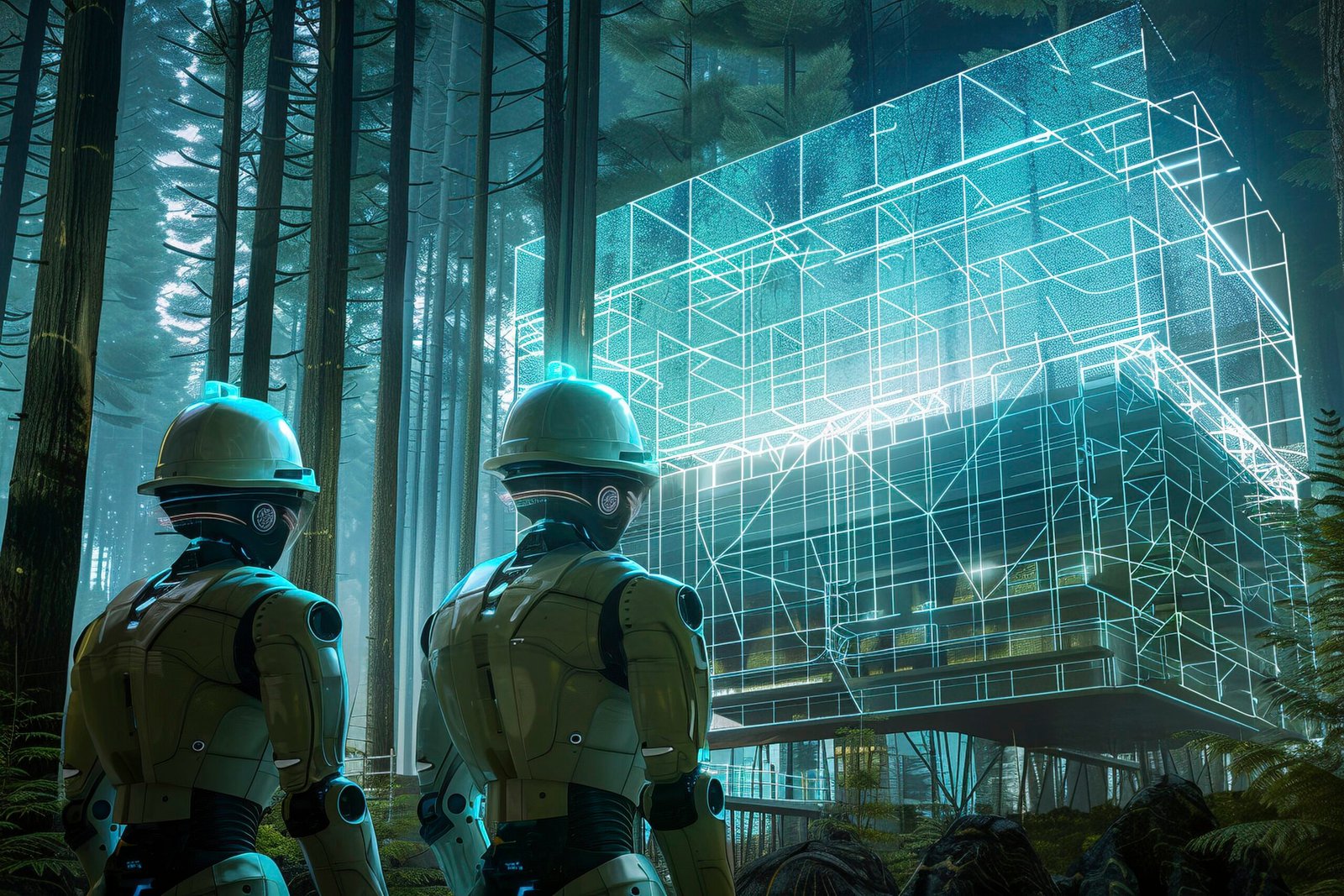Introduction to Stichting Bouwresearch
Stichting Bouwresearch is a pivotal organization in the Netherlands, driving research and innovation in the construction industry. With a mission to enhance building practices through advanced research and collaboration, Stichting Bouwresearch plays a crucial role in shaping how structures are designed, built, and maintained. Whether you are a professional in the building sector, a student of architecture, or simply curious about the evolution of construction practices, understanding the impact and contributions of Stichting Bouwresearch can provide valuable insights into the future of sustainable building.
The Evolution of Stichting Bouwresearch Over the Decades
Founded in the 1960s, Stichting Bouwresearch has evolved alongside the changing landscape of construction. Initially established to support research in traditional building methods, the organization quickly adapted to emerging trends, such as energy efficiency and digital construction. Over the decades, Stichting Bouwresearch has expanded its focus from basic research to encompass digital technologies, green building practices, and smart urban planning. This evolution reflects the organization’s commitment to staying ahead of industry needs, making it a driving force in the Netherlands’ construction sector.
Technological Innovations by Stichting Bouwresearch
Stichting Bouwresearch is known for pioneering technological advancements in the building industry. The organization integrates cutting-edge technologies like Artificial Intelligence (AI), the Internet of Things (IoT), and smart building systems into its research projects. These technologies enable more efficient data collection, better predictive models for building maintenance, and smarter designs that adapt to the needs of modern living.
For example, the use of IoT sensors in smart buildings helps monitor energy consumption in real time, allowing property managers to optimize energy use. This not only reduces costs but also aligns with the global push for more sustainable practices in the built environment.
Stichting Bouwresearch’s Impact on Policy and Regulation
The research conducted by Stichting Bouwresearch has a profound impact on construction policies and regulations in the Netherlands. By providing evidence-based recommendations, the organization helps shape building codes and standards that ensure safety, quality, and environmental responsibility. For instance, its studies on fire-resistant materials and earthquake-proof designs have influenced national safety standards, making buildings safer and more resilient.
Moreover, Stichting Bouwresearch’s focus on energy-efficient construction has contributed to stricter regulations regarding energy performance in buildings, aligning with European Union directives. These regulations have pushed the construction industry to adopt greener practices, leading to a significant reduction in the carbon footprint of new developments.
Collaboration with International Institutions
Stichting Bouwresearch’s influence extends beyond national borders through its collaborations with international research institutions and industry associations. These partnerships allow the organization to share knowledge, adopt global best practices, and apply international insights to Dutch construction challenges.
Collaborations with European research networks have been particularly fruitful, leading to joint projects that explore the use of bio-based building materials and the potential of 3D printing in construction. By working with partners across the globe, Stichting Bouwresearch ensures that its research is relevant not only in the Netherlands but also in a global context, contributing to the advancement of construction techniques worldwide.
Detailed Case Studies of Key Projects
The Sustainable Office Building Project
One of Stichting Bouwresearch’s flagship projects is the Sustainable Office Building Project in Rotterdam. This initiative aimed to create a blueprint for energy-efficient office spaces that prioritize occupant well-being. The building incorporates solar panels, advanced insulation materials, and a rainwater harvesting system, significantly reducing its environmental impact.
The project’s success has made it a model for sustainable design in Europe, demonstrating how energy consumption can be reduced by 40% without compromising comfort or functionality. It serves as a tangible example of how Stichting Bouwresearch translates research into real-world applications that benefit both the environment and building occupants.
The Smart City Initiative
Another notable project is the Smart City Initiative, which transformed a mid-sized Dutch city into a fully integrated smart urban area. Through the use of IoT devices and AI-driven analytics, the initiative improved urban management, from energy use to traffic flow and public safety. Stichting Bouwresearch’s role in this project highlights its ability to integrate advanced technology into urban planning, making cities more livable and efficient.
Stichting Bouwresearch’s Role in Promoting Green Building Practices
Sustainability is at the heart of Stichting Bouwresearch’s mission. The organization has been a vocal advocate for green building practices, pushing for the use of renewable materials and the reduction of waste in construction. Its research on circular economy principles has provided valuable insights into how materials can be reused and recycled, reducing the need for new resources.
For example, Stichting Bouwresearch has conducted studies on the use of recycled concrete, proving that it can be as durable and reliable as traditional concrete. This research has led to increased adoption of recycled materials in construction projects, contributing to a significant reduction in construction waste.
Educational Programs and Workforce Training
Stichting Bouwresearch is committed to fostering a skilled workforce capable of meeting the challenges of modern construction. The organization offers training programs and workshops designed to keep industry professionals up-to-date with the latest technologies and best practices. These programs cover a wide range of topics, including digital construction methods, sustainable building practices, and safety regulations.
By investing in education, Stichting Bouwresearch ensures that the industry is equipped with the knowledge and skills needed to implement innovative solutions. This focus on continuous learning helps maintain the Netherlands’ reputation as a leader in sustainable and high-quality construction.
Challenges Facing Stichting Bouwresearch
Despite its many successes, Stichting Bouwresearch faces challenges, including adapting to rapid technological changes and securing funding for long-term research projects. The construction industry is evolving quickly, and staying at the forefront of innovation requires significant investment in new technologies and methodologies.
Additionally, balancing the need for practical solutions with academic rigor can be difficult. The organization must ensure that its research remains relevant to industry stakeholders while maintaining the high standards of scientific inquiry that have built its reputation.
Future Directions and Strategic Goals
Looking ahead, Stichting Bouwresearch aims to further integrate digital tools into construction processes and focus on climate resilience in urban planning. The organization is exploring the potential of AI to predict building maintenance needs, which could lead to more efficient management of large building portfolios.
Moreover, Stichting Bouwresearch plans to expand its research into bio-based materials, which could revolutionize sustainable construction. These efforts align with global trends toward reducing carbon emissions and promoting biodiversity in urban areas, ensuring that Stichting Bouwresearch remains a key player in the future of building research.
Conclusion: The Enduring Influence of Stichting Bouwresearch
Stichting Bouwresearch has cemented its place as a leader in the field of construction research. Through its innovative projects, collaborative spirit, and commitment to sustainability, it has shaped the way buildings are designed, constructed, and maintained in the Netherlands and beyond. Its work not only influences building practices but also guides policy, ensuring that the construction industry can meet the challenges of the 21st century with resilience and ingenuity.
Whether through its impact on safety standards, its advocacy for green building practices, or its focus on education and innovation, Stichting Bouwresearch continues to pave the way for a future where construction is smarter, greener, and more sustainable. As the organization looks to the future, it remains dedicated to creating spaces that are not just buildings but environments where people can thrive.
FAQs about Stichting Bouwresearch
Q: What is Stichting Bouwresearch?
A: Stichting Bouwresearch is a Dutch research organization focused on advancing the construction industry through innovation and sustainable practices.
Q: How does Stichting Bouwresearch influence construction policies?
A: Through research and recommendations, Stichting Bouwresearch shapes building codes and regulations, ensuring high standards of safety, quality, and sustainability.
Q: What are some key projects by Stichting Bouwresearch?
A: Notable projects include the Sustainable Office Building Project and the Smart City Initiative, both of which have set benchmarks for green design and smart urban planning.
Q: How does Stichting Bouwresearch promote sustainability?
A: The organization researches renewable materials, energy-efficient building practices, and circular economy principles to reduce the environmental impact of construction.
Q: Who can benefit from Stichting Bouwresearch’s work?
A: Architects, engineers, contractors, policymakers, and anyone involved in the building industry can benefit from the research and insights provided by Stichting Bouwresearch.


